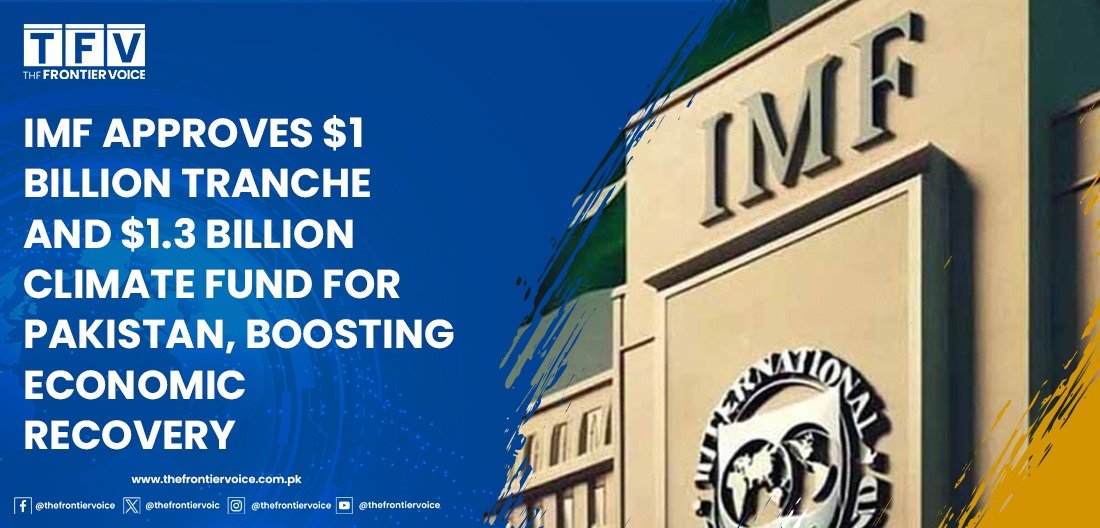BUSINESS/FINANCE
IMF Approves $1 Billion Tranche and $1.3 Billion Climate Fund for Pakistan, Boosting Economic Recovery

The International Monetary Fund (IMF) Executive Board, convening in Washington, D.C., approved the first review of Pakistan’s $7 billion Extended Fund Facility (EFF), unlocking an immediate disbursement of $1 billion. This approval, following a staff-level agreement reached on March 25, 2025, marks a significant milestone in Pakistan’s ongoing economic stabilization efforts. Additionally, the IMF endorsed a new 28-month Resilience and Sustainability Facility (RSF) worth approximately $1.3 billion to support Pakistan’s climate resilience initiatives, addressing vulnerabilities to natural disasters and promoting sustainable development.
The IMF commended Pakistan for its progress in restoring macroeconomic stability, highlighting a sharp decline in inflation to its lowest level since 2015, improved financial conditions, and strengthened external balances. According to the IMF, Pakistan’s total liquid foreign reserves reached $15.48 billion as of May 2, 2025, with the State Bank of Pakistan holding $10.33 billion. However, challenges persist, including a narrow tax base, weak governance, and insufficient investment in health, education, and infrastructure, which the IMF stressed must be addressed through structural reforms. The RSF will focus on enhancing public investment processes, improving water resource efficiency, and strengthening disaster response coordination to build resilience against climate-related risks.
Prime Minister Shehbaz Sharif welcomed the IMF’s decision, expressing satisfaction with the approval of the $1 billion tranche and praising his economic team, led by Finance Minister Muhammad Aurangzeb and Secretary Finance Imdad Ullah Bosal, for their efforts. In a statement, the Prime Minister’s Office emphasized that Pakistan’s economic indicators have shown improvement over the past 14 months, reflecting the success of consistent policy measures. PM Shehbaz alleged that India attempted to derail the IMF program through “unilateral acts of aggression” and “baseless propaganda,” but international institutions responsibly dismissed these efforts. He underscored that the funds would bolster Pakistan’s path to stable, long-term recovery, with ongoing reforms in the energy sector and taxation.
The approval faced opposition from India, which urged the IMF to review its loans to Pakistan, citing concerns over potential misuse for military purposes and cross-border terrorism following the April 22 Pahalgam attack in Indian-administered Kashmir. India abstained from the vote, but the IMF proceeded, affirming Pakistan’s compliance with program conditions, including the introduction of a carbon levy and agricultural income tax reforms in Sindh and Balochistan. The decision is expected to enhance market confidence and catalyze further support from multilateral and bilateral partners, with Pakistan also requesting China to expand its currency swap line by 10 billion yuan ($1.4 billion).
As Pakistan navigates a challenging global environment, the IMF funds provide critical external financing to support fiscal consolidation, reduce public debt, and promote private-sector-led growth. The government’s commitment to maintaining tight monetary policies, rebuilding foreign reserves, and implementing energy sector reforms will be key to sustaining these gains. With the next IMF review scheduled for October 2025, Pakistan’s economic team remains focused on entrenching stability and fostering sustainable development, despite regional tensions and domestic structural challenges.
